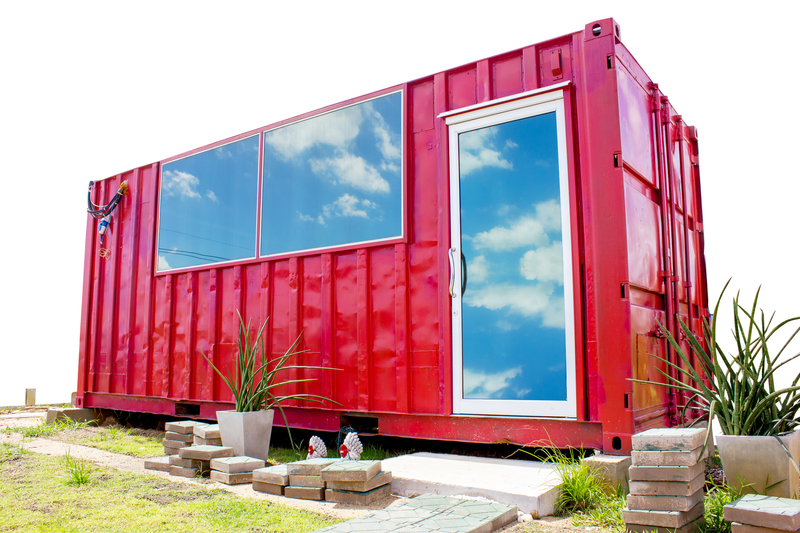Skip Hire vs Skip Bags Explained
Posted on 08/08/2024
When undertaking a home renovation, garden makeover, or a major clear-out, waste management becomes a significant concern. Two popular solutions often considered are skip hire and skip bags. Both options offer distinct advantages and cater to different needs, making it crucial to understand their differences to make an informed decision. This article delves into the features, benefits, and drawbacks of skip hire and skip bags to help you choose the best waste management solution for your project.
What is Skip Hire?
Skip hire refers to the process of renting large, metal skips to collect and transport substantial amounts of waste. Skips come in various sizes, typically ranging from 2 to 16 cubic yards, and can handle heavy, bulky items such as construction debris, old furniture, and garden waste.

Advantages of Skip Hire
1. Capacity: Skips offer large capacity options, making them ideal for substantial waste removal projects.
2. Convenience: With rapid delivery and pick-up services, skips are a convenient choice for both commercial and residential use.
3. Versatility: Available in various sizes, skips can be customized to match the specific needs of different projects.
4. Efficiency: Skips streamline the waste removal process, helping you maintain a clean and organized workspace.
Disadvantages of Skip Hire
1. Space Requirements: Skips require adequate space for placement, which may be challenging in urban or confined areas.
2. Permits: Depending on location, you might need a permit to place a skip on public property, adding to the overall cost and effort.
3. Cost: The expenditure associated with skip hire can be considerable, particularly for extended use or larger sizes.
What are Skip Bags?
Skip bags, also known as waste bags or rubbish sacks, are large, durable bags designed for waste collection and disposal. Skip bags can often be purchased at hardware stores and come in various sizes, typically holding up to 1.5 cubic yards of waste. Once filled, they are collected by waste management companies.
Advantages of Skip Bags
1. Flexibility: Skip bags are highly flexible in terms of placement, as they can fit into tight spaces and awkward spots where skips cannot be positioned.
2. Ease of Use: Lightweight and easy to move around, skip bags are convenient for smaller or tighter projects.
3. No Permits Required: Generally, skip bags do not require any permits, simplifying the regulatory process.
4. Cost-Effective: Being cheaper than skip hire, skip bags are a budget-friendly option for smaller-scale projects.
Disadvantages of Skip Bags
1. Limited Capacity: Skip bags are not suitable for very large or heavy waste loads, limiting their effectiveness for extensive projects.
2. Durability: While robust, skip bags are less durable than metal skips and can potentially tear if overloaded.
3. Collection Scheduling: Collection services might not be as prompt or frequent, which can delay waste removal.
Pros and Cons
Skip Hire:
- Pros:
- Large capacity
- Convenient and efficient
- Versatile with various sizes
- Cons:
- Space requirement
- Possible need for permits
- Higher cost
Skip Bags:
- Pros:
- Flexible placement
- Easy to use
- No permits needed
- Cost-effective
- Cons:
- Limited capacity
- Potential durability issues
- Less frequent collection
Tips for Choosing Between Skip Hire and Skip Bags
1. Assess Your Waste Volume: Determine the amount and type of waste you need to dispose of. Large amounts of heavy waste may necessitate a skip, while smaller loads may be better suited to skip bags.
2. Consider Space Availability: Evaluate the available space for placing a skip or skip bag to ensure they fit without obstructing access.
3. Budget Constraints: Factor in the cost implications of both options. While skips may be more expensive, they offer higher capacity and convenience for large-scale projects.
4. Project Duration: For long-term projects, skip hire may offer better value due to the option of extended hires, while skip bags may suit shorter, smaller projects with less waste.

Key Takeaways
- Skip hire is ideal for large-scale, high-volume waste removal projects where space and budget allow.
- Skip bags offer a flexible, cost-effective solution for smaller projects and tight spaces.
- Assessing the volume of waste, available space, budget, and project duration can help you choose the right option.
Conclusion
Both skip hire and skip bags provide viable waste management solutions, each suited to different project scales and requirements. While skips are advantageous for handling large volumes of waste efficiently, skip bags offer flexibility and ease of use for smaller projects. By considering the specific needs of your project, you can opt for the most appropriate waste disposal method, ensuring a smooth and organized waste management process.
Latest Posts
UK's Environmental Issues: Waste Dumping
Effortless Household Recycling Ideas






